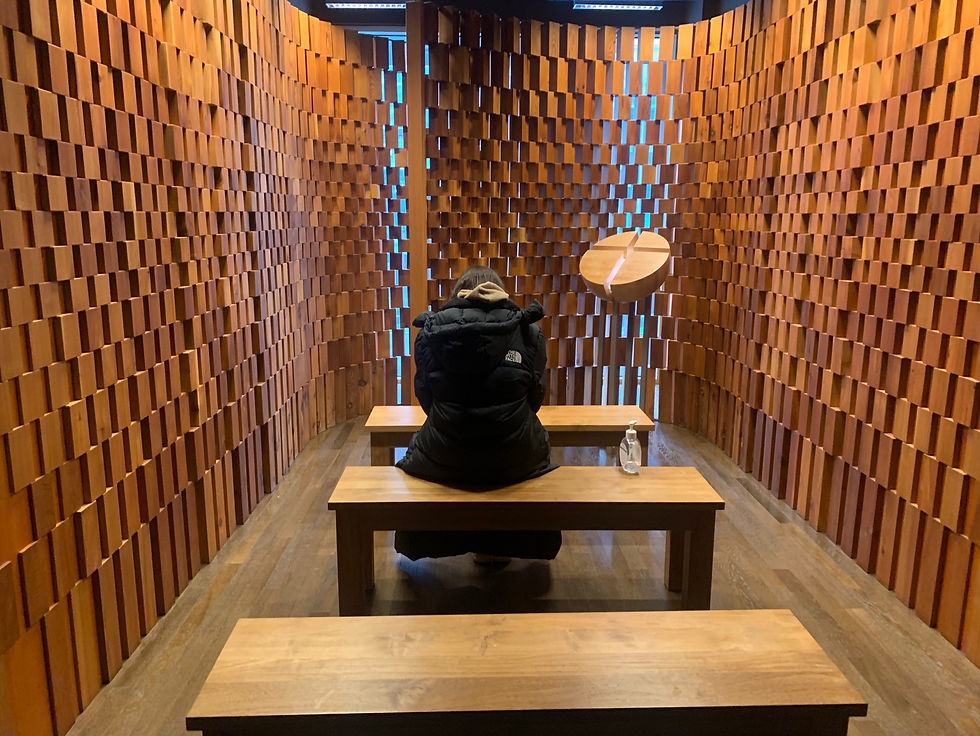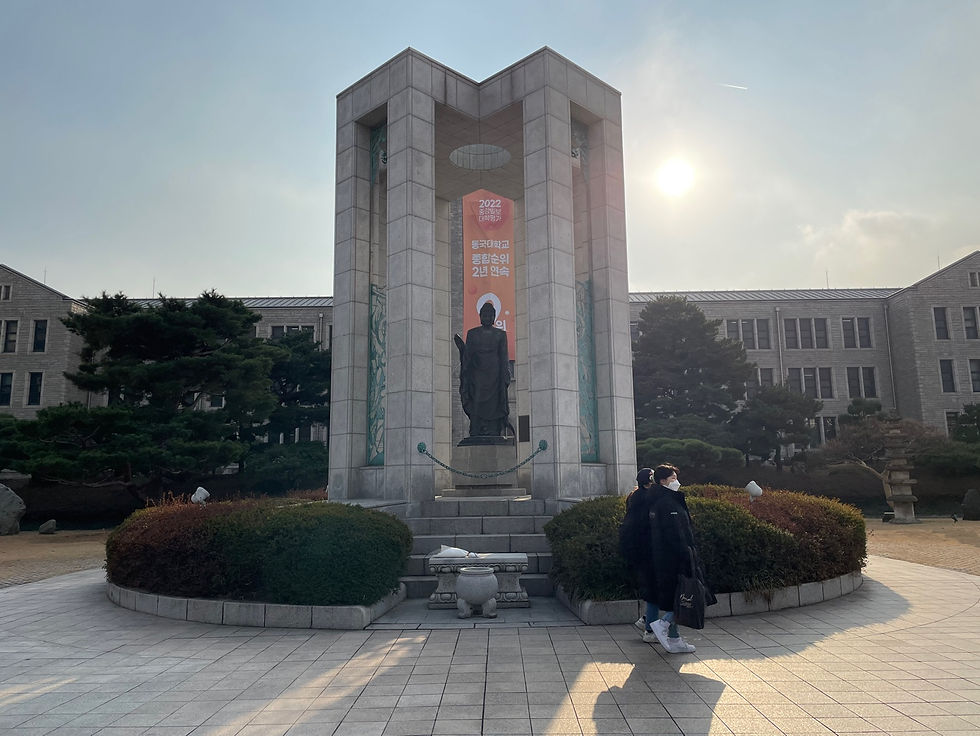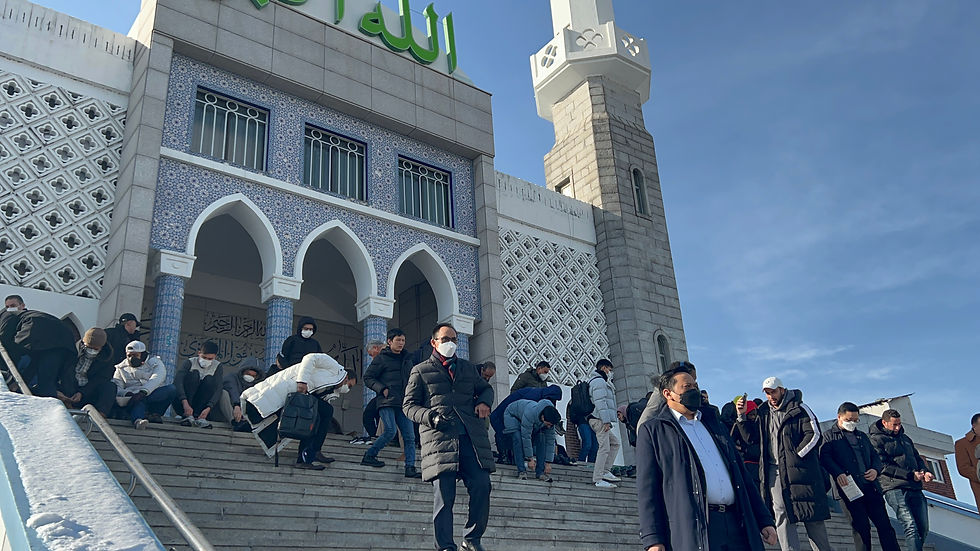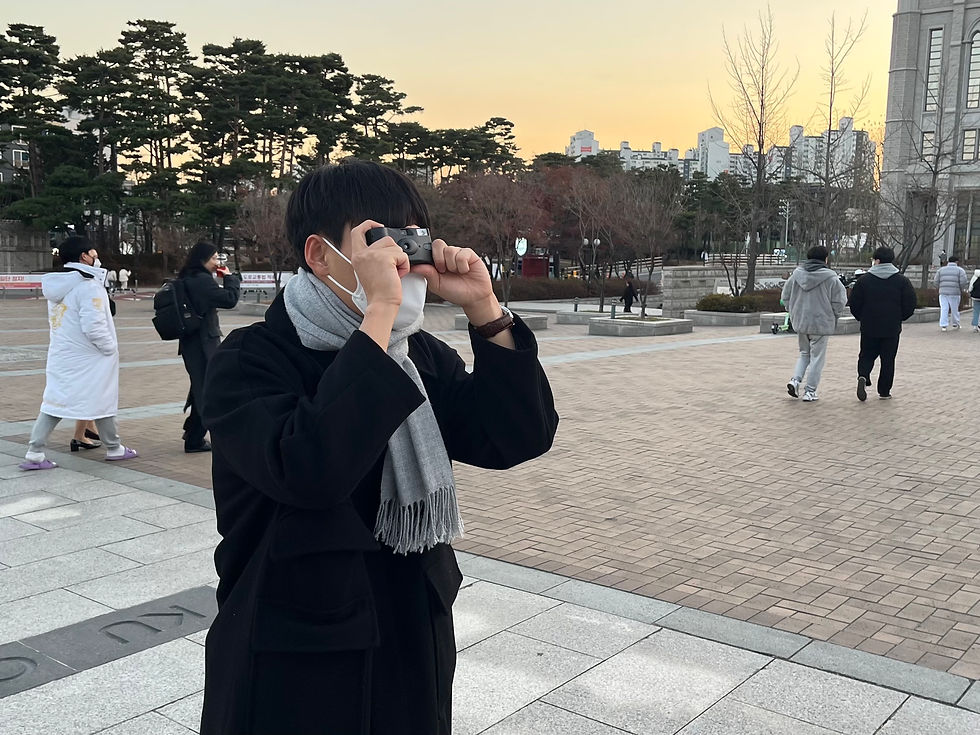Compulsory Religious Education in Korean Universities
- 창완유[ 학부재학 / 미디어학부 ]
- Oct 12, 2022
- 3 min read
Updated: Dec 12, 2022
December 11, 2022
Kyryliuk Viktoriia, Octavia VanHecke
SEOUL - Many students attending university in Korea are faced with religious classes as a graduation requirement regardless of their own beliefs. While some say it upholds their university’s values, others think people shouldn’t be forced to take a class on something they don’t believe.

Ewha Womans University was founded by Christian missionaries and has strong religious ties to Christianity, including 8 semesters of mandatory chapel class for all students. While it is known to be a Christian school, many students are unhappy with this graduation requirement and feel uncomfortable taking these classes.

Eléonore, a Christian student at Ewha, felt a culture shock taking these types of classes. “In university in my home country we don’t teach religious classes.” Even though she is Christian, she feels it is unfair to force every student to take these classes if they are not inclusive of every religion. “I think they should be able to choose.”
Medina, another student at Ewha University, also dislikes chapel class being a requirement. “There are many people who are not religious or have a different religion” she states, “it’s not just me, but other students I’ve talked to have a mostly negative attitude towards this.”
Ewha University states that these classes are to uphold the Christian values that the university was founded upon, and offers no alternative to students of other religious backgrounds.
Another private Christian university, Yonsei University, requires taking chapel class for two semesters. However, they have taken a different approach to make the class less uncomfortable for non-Christians. By focusing less on hymns and prayers and more on history and theology, the class has become more inclusive, says one international student.

“My friend enjoys chapel class because he gets to learn about theology,” states Amara, an international student at Yonsei University. She believes Yonsei’s chapel classes are changing, but still feels that people shouldn’t be forced to take a class on religion if they don’t want to, and it would be better to make it optional.

“Yonsei was founded on Christian values so we have to take [chapel] classes during freshman year, however the classes are diverse so I think it’s okay,” states one Korean student.
When asked for an interview, both Ewha and Yonsei University’s Chapel officials refused, citing legal reasons surrounding the topic. In a case where a student filed complaints for having to take mandatory Chapel class, the National Human Rights Commission of Korea ordered that it was an infringement of the freedom of religion and ordered the university to change its mandatory requirement. Because of this incident, many religious private universities now are trying to avoid criticism or controversy over their mandatory religious classes.

Statue of Buddha, above, and white elephants, mounts of Samantabhadra, below, in main square at Dongguk University

However, Christianity is not the only religion being enforced at Korean universities. At Dongguk University, one of the few Buddhist affiliated universities in the world, students are required to take Buddhist meditation classes to graduate. Yangwoo, a Chinese international student, says that many of his friends were surprised they had to take this class, and didn’t know it was a requirement. However, he didn’t feel negatively about having to take the class.“Some students even use that time to take a nap,” he says.
“The meditation classes we are required to take don’t force strong religious beliefs on us, so I don’t see them as a problem.”


While these universities do have the right to uphold their religious values and foster a community of like-minded individuals, the existence of mandatory religious education is a source of controversy for many students. While it is still legal to require religious education in order to graduate, with more international students studying at Korean universities and new rulings by the National Human Rights Commission, these classes may be altered or replaced completely.



Comments